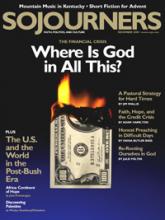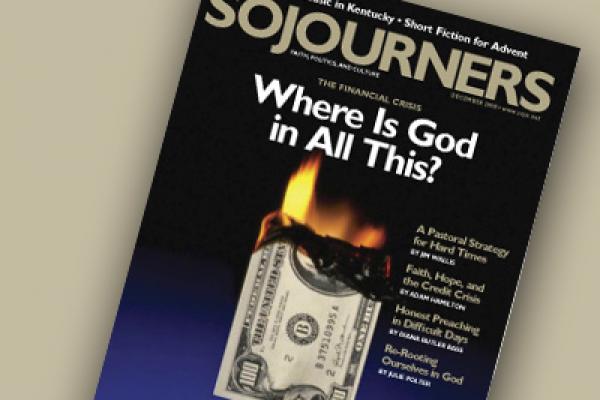Paul Krugman, professor of economics at Princeton University and winner of the 2008 Nobel Prize in economics, offered a prescient assessment of the nation’s economic condition earlier this year. He noted that the U.S. economy is suffering from a “crisis of faith.” He meant by this a growing lack of trust in our economic institutions and the securities that have backed much of our debt.
At the center of this crisis is the use of, and problems surrounding, the extension of credit. It is worth noting that “credit” is a word that is a part of the language of faith. It comes from the Latin credere—to believe or to trust. The present active form of this word—credo, “I believe”—opens the Apostle’s Creed. In the case of credit, belief or trust is placed in the borrower and her or his willingness and ability to repay. Our current economic crisis is in part about misplaced trust or faith between debtors and lenders.
Neither the $700 billion bailout package, nor a Federal Reserve interest rate cut, nor presidential calls for calm seem to adequately speak to the underlying issues that precipitated this crisis of faith. This is a moment when the Bible and people of faith have both the timely word that can calm fears and the most accurate assessment of what fundamentally led to the current economic debacle.
The word of hope is found in the words spoken to people in adversity throughout the Bible. There are the words of the prophets spoken to the Israelites living in exile after losing everything. To them God spoke profound words of promise: “Do not fear, for I am with you; do not be dismayed, for I am your God. I will strengthen you and help you” (Isaiah 41:10). The psalmists, too, during periods of adversity wrote, “God is our refuge and strength, an ever-present help in trouble. Therefore we will not fear” (Psalm 46:1-2).
Read the Full Article

